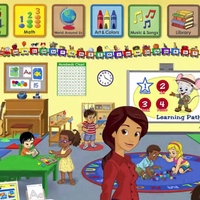First US infant death linked to COVID-19 reported in Illinois

The first infant death related to COVID-19 in the United States has been reported in the Chicago area today (March 28).
"There has never before been a death associated with COVID-19 in an infant," said Dr. Ngozi Ezike, the director of the Illinois Department of Public Health (IDPH). "A full investigation is underway to determine the cause of death. We must do everything we can to prevent the spread of this deadly virus. If not to protect ourselves, but to protect those around us."
The age of the infant, who lived in Cook County, has not been released. This isn't the first death in an infant confirmed to have COVID-19. In China, a 10-month-old with the disease, died 4 weeks after being admitted to the Wuhan Children's Hospital, according to a March 18 report published in the New England Journal of Medicine.
Related: 13 Coronavirus myths busted by science
Though as the pandemic unfolds, doctors are realizing that no age group is immune to the virus nor to its severe health effects, the disease caused by the novel coronavirus still appears to be more severe in older adults.
More than 85% of COVID-19 deaths in Illinois have been in patients aged 60 and older. And across the U.S., even though 31% of confirmed COVID-19 cases occurred in adults ages 65 and older, this age group represents 45% of hospitalizations, 53% of admissions to the ICU and 80% of the deaths, according to the Centers for Disease Control and Prevention's Morbidity and Mortality Weekly Report on March 26.
Currently, Illinois has confirmed 3,491 COVID-19 cases and 47 related deaths in 43 counties. The ages of those infected, range from younger than 1 to 99 years, the IDPH reported.
Sign up for the Live Science daily newsletter now
Get the world’s most fascinating discoveries delivered straight to your inbox.
Coronavirus science and news
- Coronavirus: Live updates
- What are coronavirus symptoms?
- How deadly is the new coronavirus?
- How long does coronavirus last on surfaces?
- Is there a cure for COVID-19?
- How does coronavirus compare with seasonal flu?
- How does the coronavirus spread?
- Can people spread the coronavirus after they recover?
Editor's note: This article was updated to fix the spelling of Cook County.
Originally published on Live Science.
The one-month trial gives you access to all of the educational site's 9,000 activities in reading, science, math and art. Keep your child busy and learning while we are all stuck indoors.
Jeanna Bryner is managing editor of Scientific American. Previously she was editor in chief of Live Science and, prior to that, an editor at Scholastic's Science World magazine. Bryner has an English degree from Salisbury University, a master's degree in biogeochemistry and environmental sciences from the University of Maryland and a graduate science journalism degree from New York University. She has worked as a biologist in Florida, where she monitored wetlands and did field surveys for endangered species, including the gorgeous Florida Scrub Jay. She also received an ocean sciences journalism fellowship from the Woods Hole Oceanographic Institution. She is a firm believer that science is for everyone and that just about everything can be viewed through the lens of science.











